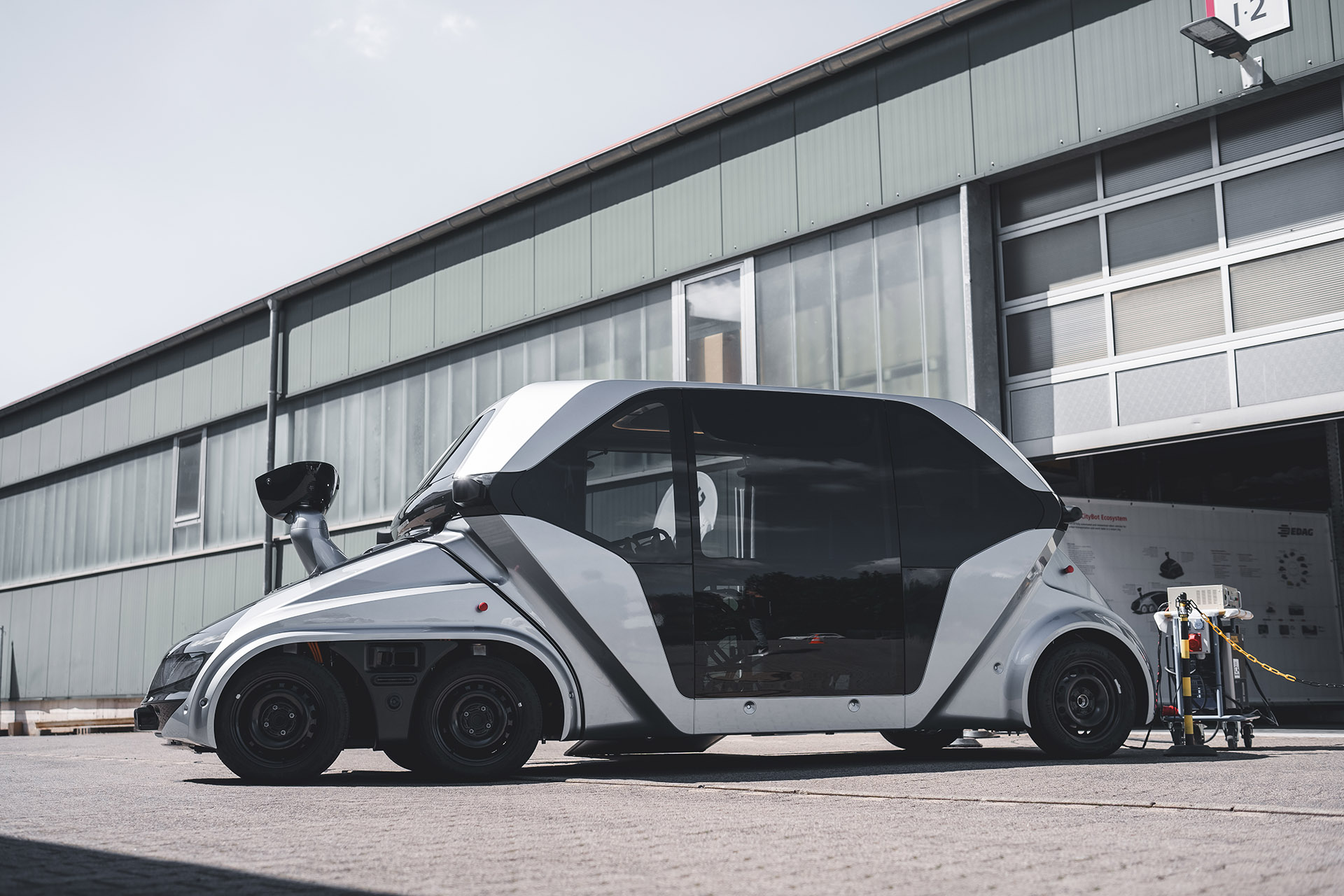
Erste First test carried out on the EDAG CityBots in the real lab in Fulda.
Photo: EDAG Group
The EDAG Group has successfully carried out the first live tests on the highly automated CityBot vehicles at the real lab at its premises in Fulda.
Johannes Barckmann, EDAG CityBot Concept & Product Owner, explains why the EDAG Group has set up its own real lab: “Our laboratory in Fulda has many advantages: We are testing all the functionalities of the EDAG CityBot ecosystem at the real lab in Fulda. The preliminary trials on the EDAG CityBot use cases and initial commissioning of the entire system for the
Slide 1: Hesse’s Digital Minister and Sebastian Müller (Member of Parliament) in the EDAG CityBot. Photo: EDAG Group
Slide 2: All tasks for the EDAG CityBots are received in the operations center. Photo: EDAG Group
Slide 3: From left to right: Dirk Keller (Managing Director of EDAG Production Solutions), Gerhard Körbel (EDAG’s Overall Campus FreeCity Project Manager), Prof. Dr. Kristina Sinemus, Johannes Barckmann (EDAG CityBot Concept & Product Owner), Harald Keller (COO EDAG Engineering GmbH) Photo: EDAG Group
This car stands still for an average of 23 hours a day. Instead of 530 privately owned cars, just 100 CityBots could fully cover all inner city mobility and service requirements for approximately 1,000 inhabitants, reducing the number of vehicles in the city to one fifth. On top of this, these 100 CityBots also carry out the municipal tasks.
While visiting Fulda during her summer trip, Hesse’s Digital Minister Prof. Dr. Kristina Sinemus had a look at the future of mobility. At the EDAG Group’s site, the minister was provided with information on the fully integrated approach to solving the urban mobility challenges of tomorrow.
She gained insights into how the idea of employing a multifunctional, highly automated fleet of robots for extensive mobility, transport and service tasks in the smart city could become reality.
“This is a place where history is being made, where modern technologies are demonstrated and the great potential of digitalization can be experienced,” said the minister during her tour of the EDAG site in Fulda. Digitalization is the key to the mobility revolution. “In Hesse, we want to be pioneers for innovative transport solutions and the conditions for this are good,” said Prof. Dr. Sinemus. In Germany’s cities, every second inhabitant currently owns a car.

